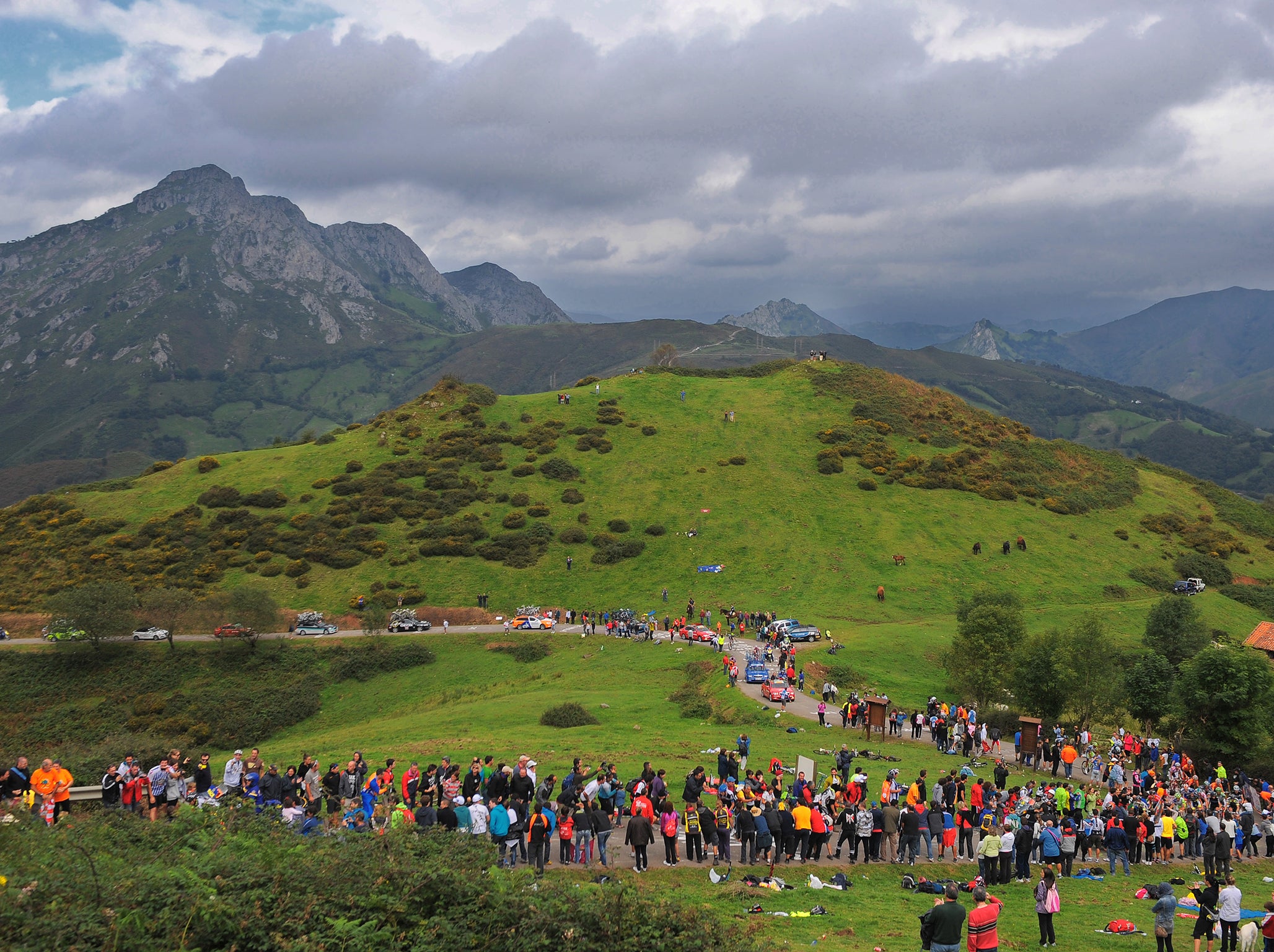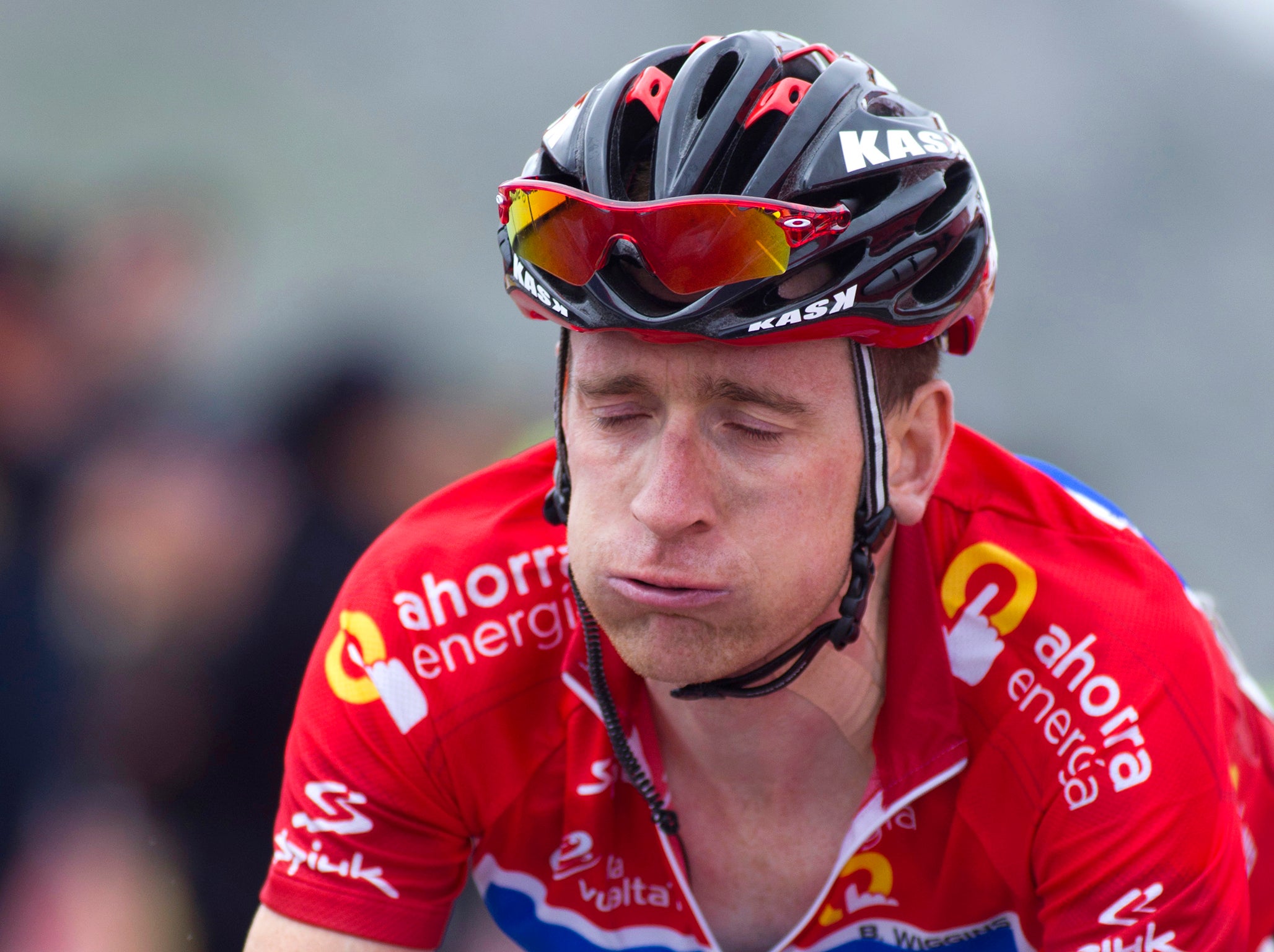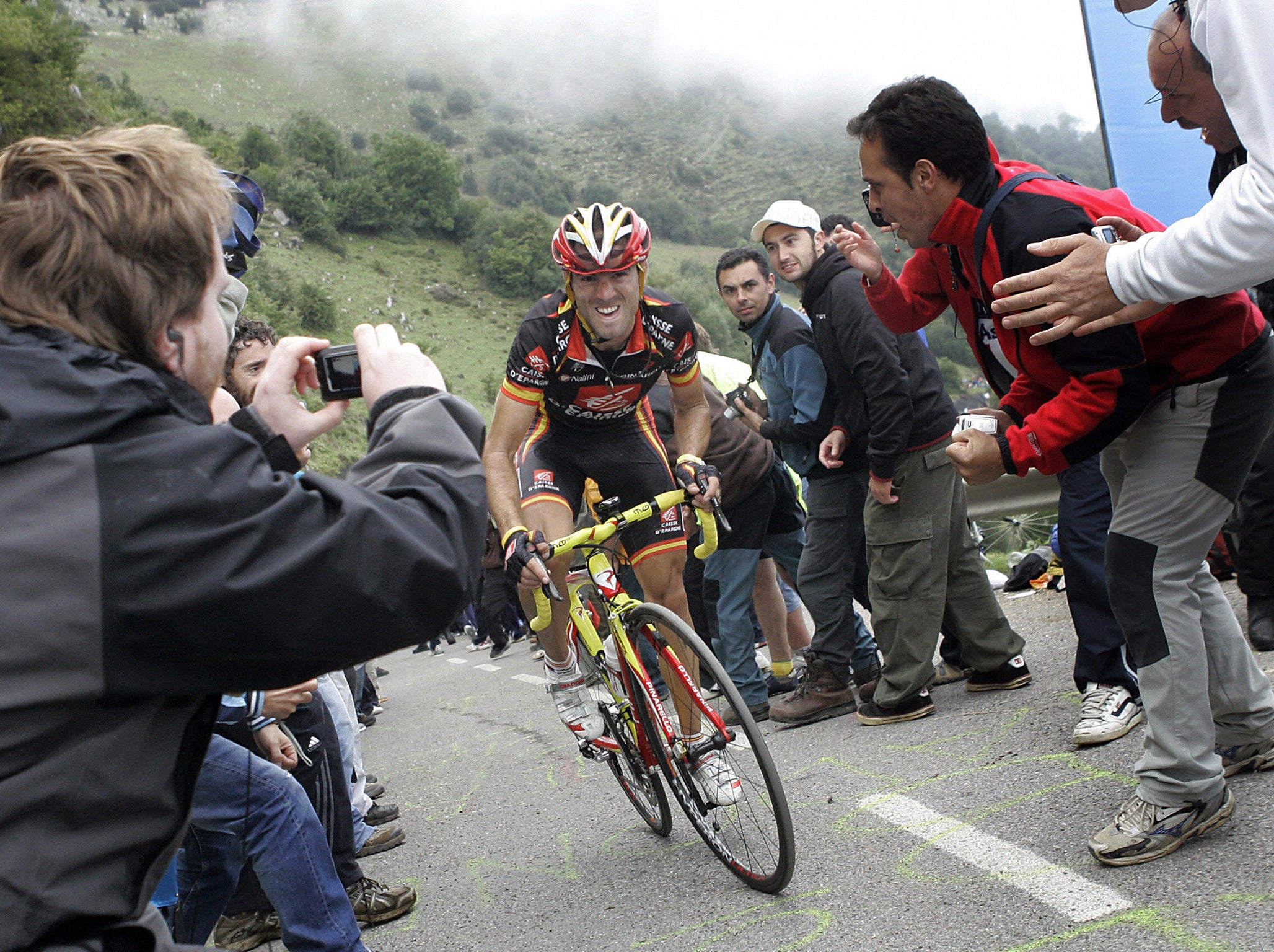Vuelta 2017: Chris Froome and co prepare for their toughest test yet on the hellish roads of l'Alto de l'Angliru
Stage 20 features the brutal climb up l’Alto de l’Angliru for the seventh time

Spain is the most mountainous country in Western Europe after Austria but yet, La Vuelta was not known for its legendary climbs as much as the Giro d’Italia and the Tour de France until the inception of l’Alto de l’Angliru on the route in 1999.
It’s technically the climb of the XXIst century in modern cycling, now competing against the Monte Zoncolan in Italy for the most appealing grueling ascent in the mind of fun riders and fans of extreme racing.
Stage 20 features l’Alto de l’Angliru for the seventh time. Discovered by the organizers of the event in 1997, the path was asphalted for the race to go up there two years later.
“We’ve never seen anything like this before”, La Vuelta two-time winner Pedro Delgado declared after he went to reconnoitre the hill and experienced the steepest part, the Cueña les Cabres. 3km before the summit, gradients are up to 24%.
The first stage winner atop the Asturian summit (altitude: 1560m) was the late José Maria Jimenez, the popular “chava” who was tipped as the hot favorite as soon as the route of the 54th edition was unveiled. La Vuelta returned to l’Angliru the year after.
“It’s hell”, declared stage winner Gilberto Simoni. But the harshest quotes came from David Millar in 2002.

“We’re not animals and this is inhuman”, the Scot spat out as he refused to cross the finishing line. Because of the pouring rain, he had slipped twice riding uphill. As a protest, he tore off his bib and pulled out of La Vuelta with six stages to go.
L’Alto de l’Angliru is still steep but no longer hell since the professional road riders have adopted the use of gears initially created for mountain biking. The current technology enables them to climb on such steep roads, which would have not been possible last century.
Alberto Contador became famous in Spain when La Vuelta tackled l’Angliru again in 2008. It’s where he received his first leader’s jersey. It was also his first stage win in a solo effort in the last five kilometers of climbing. He doubled up the day after at Fuentes de Invierno with one week to go and caught the heart of the aficionados.

The three-time overall winner from Pinto is unbeaten at l’Angliru since he didn’t take part in La Vuelta in 2011 and 2013 when Juanjo Cobo and Kenny Elissonde successively became surprise winners at the top of the most feared ascent of the Spanish Grand Tour.
Contador has a chance to remain unbeaten. Stage 20 is set to be his last mountainous race ever before he retires from competitive cycling. The route is absolutely to his taste. It’s a very short stage of 117.5km only with the Alto de la Cobertoria and the Alto del Cordal to climb before the grand finale.
Whoever leads the race or defends a nice position in the overall ranking can’t afford any weakness on his way to the top.
Join our commenting forum
Join thought-provoking conversations, follow other Independent readers and see their replies
Comments
Bookmark popover
Removed from bookmarks